Lycopene
Our premium Lycopene supplement is a powerhouse antioxidant derived from tomatoes and other red fruits. Lycopene is renowned for its remarkable health benefits, contributing to overall well-being and vitality. Stanford Chemicals has been providing quality Lycopene and many other natural plant extracts for over 25 years.
Key Features of Lycopene:
- Potent Antioxidant Protection: Lycopene is a natural antioxidant that neutralizes harmful free radicals in the body. By combating oxidative stress, it supports a healthy immune system and helps protect cells from damage.
- Heart Health Support: Numerous studies suggest that Lycopene may play a role in promoting cardiovascular health by supporting normal cholesterol levels and maintaining optimal blood pressure. Incorporating Lycopene into your routine may contribute to a heart-healthy lifestyle.
- Skin Radiance and Protection: Lycopene’s antioxidant properties extend to skin health, helping to shield the skin from the effects of UV radiation and environmental pollutants. Experience a natural glow and fortify your skin’s defense against external stressors.
- Prostate Health: Lycopene has been associated with promoting prostate health, making it a valuable addition to the wellness routine of men. Its potential benefits for prostate function underscore its role in comprehensive health support.
- Cellular Integrity: Lycopene’s ability to support cellular health makes it a vital component in the maintenance of overall well-being. By promoting the integrity of cell structures, Lycopene contributes to the body’s natural defense mechanisms.
Applications of Lycopene:
– Nutraceuticals: Lycopene is a key component in heart-focused supplements, supporting cardiovascular health and acting as a powerful antioxidant for overall well-being.
– Skincare and Cosmetics: Widely utilized in skin care products, lycopene shields the skin from UV radiation, contributing to anti-aging formulations and enhancing skin radiance.
– Prostate Health: Recognized for its positive impact on prostate health, lycopene is a common ingredient in supplements designed to support men’s health.
– Food and Beverage Industry: Beyond its health benefits, lycopene serves as a natural colorant, imparting an appealing red hue to a variety of food and beverage products.
– Pharmaceutical Interest: Ongoing research explores lycopene’s potential therapeutic properties, including anti-inflammatory and anti-cancer attributes, positioning it as a subject of interest in the pharmaceutical realm.
– Agricultural Biostimulant: Beyond consumption, lycopene demonstrates promise as a biostimulant for plants, potentially enhancing growth and resilience in agricultural settings.
Lycopene Safety Tips
Handling of Lycopene should only be performed by personnel trained and familiar with handling of potent active pharmaceutical ingredients. Moderate to severe irritant to the skin and eyes.
References
- 1. Evaluation of the effect of newer antioxidant lycopene in the treatment of oral submucous fibrosis.
Karemore TV, Motwani M.Indian J Dent Res. 2012 Jul;23(4):524-8. doi: 10.4103/0970-9290.104964. - 2. Phytochemical Stability in Dried Tomato Pulp and Peel as Affected by Moisture Properties.
Lavelli V, Kerr WL, Pedapati SH.J Agric Food Chem. 2012 Dec 21. [Epub ahead of print] - 3. Plasma carotenoid concentrations in infants are increased by feeding a milk-based infant formula supplemented with carotenoids.
Mackey AD, Albrecht D, Oliver J, Williams T, Long AC, Price PT.J Sci Food Agric. 2012 Nov 16. doi: 10.1002/jsfa.5996. [Epub ahead of print] - 4. The stability of natural red/pink food colours in ultrahigh-temperature (UHT) products.
Crinó MA, Heenan CN, Nguyen MH, Stathopoulos CE.J Sci Food Agric. 2012 Nov 26. doi: 10.1002/jsfa.6009. [Epub ahead of print] - 5. Lycopene suppresses proinflammatory response in lipopolysaccharide-stimulated macrophages by inhibiting ROS-induced trafficking of TLR4 to lipid raft-like domains.
Zou J, Feng D, Ling WH, Duan RD.J Nutr Biochem. 2012 Dec 13. doi:pii: S0955-2863(12)00228-8. 10.1016/j.jnutbio.2012.08.011. [Epub ahead of print] - 6. Fruits and dietary phytochemicals in bone protection.
Shen CL, von Bergen V, Chyu MC, Jenkins MR, Mo H, Chen CH, Kwun IS.Nutr Res. 2012 Dec;32(12):897-910. doi: 10.1016/j.nutres.2012.09.018. Epub 2012 Oct 30. - 7. Natural variation in the sequence of PSY1 and frequency of favorable polymorphisms among tropical and temperate maize germplasm.
Fu Z, Chai Y, Zhou Y, Yang X, Warburton ML, Xu S, Cai Y, Zhang D, Li J, Yan J.Theor Appl Genet. 2012 Dec 13. [Epub ahead of print] - 8. Low levels of plasma carotenoids are associated with an increased risk of atrial fibrillation.
Karppi J, Kurl S, Mäkikallio TH, Ronkainen K, Laukkanen JA.Eur J Epidemiol. 2012 Dec 13. [Epub ahead of print] - 9. Assessment of phytochemical content in human milk during different stages of lactation.
Song BJ, Jouni ZE, Ferruzzi MG.Nutrition. 2013 Jan;29(1):195-202. doi: 10.1016/j.nut.2012.07.015. - 10. Anti-inflammatory activity of lycopene isolated from Chlorella marina on type II collagen-induced arthritis in Sprague Dawley rats.
Renju Gopi L, Muraleedhara Kurup G, Saritha Kumari H.Immunopharmacol Immunotoxicol. 2012 Dec 14. [Epub ahead of print] - 11. Tomato extract and the carotenoids lycopene and lutein improve endothelial function and attenuate inflammatory NF-κB signaling in endothelial cells.
Armoza A, Haim Y, Basiri A, Wolak T, Paran E.J Hypertens. 2012 Dec 11. [Epub ahead of print] - 12. Lycopene Protects against Hypoxia/Reoxygenation-Induced Apoptosis by Preventing Mitochondrial Dysfunction in Primary Neonatal Mouse Cardiomyocytes.
Yue R, Hu H, Yiu KH, Luo T, Zhou Z, Xu L, Zhang S, Li K, Yu Z.PLoS One. 2012;7(11):e50778. doi: 10.1371/journal.pone.0050778. Epub 2012 Nov 30. - 13. A lycopene-enriched virgin olive oil enhances antioxidant status in humans.
Garrido M, González-Flores D, Marchena AM, Prior E, García-Parra J, Barriga C, Rodríguez Moratinos AB.J Sci Food Agric. 2012 Oct 26. doi: 10.1002/jsfa.5972. [Epub ahead of print] - 14. Circulating carotenoids and risk of breast cancer: pooled analysis of eight prospective studies.
Eliassen AH, Hendrickson SJ, Brinton LA, Buring JE, Campos H, Dai Q, Dorgan JF, Franke AA, Gao YT, Goodman MT, Hallmans G, Helzlsouer KJ, Hoffman-Bolton J, Hultén K, Sesso HD, Sowell AL, Tamimi RM, Toniolo P, Wilkens LR, Winkvist A, Zeleniuch-Jacquotte A, Zheng W, Hankinson SE.J Natl Cancer Inst. 2012 Dec 19;104(24):1905-16. doi: 10.1093/jnci/djs461. Epub 2012 Dec 6. - 15. The Association of Antioxidants and Cognition in the Nurses’ Health Study.
Devore EE, Kang JH, Stampfer MJ, Grodstein F.Am J Epidemiol. 2012 Dec 7. [Epub ahead of print] - 16. Antioxidant capacity of tomato seed oil in solution and its redox properties in cultured macrophages.
Mueller L, Catalano A, Simone R, Cittadini A, Froehlich K, Boehm V, Palozza P.J Agric Food Chem. 2012 Dec 3. [Epub ahead of print] - 17. Diet adherence dynamics and physiological responses to a tomato product whole-food intervention in African-American men.
Park E, Stacewicz-Sapuntzakis M, Sharifi R, Wu Z, Freeman VL, Bowen PE.Br J Nutr. 2012 Nov 19:1-12. [Epub ahead of print] - 18. Analysis of Anabaena vaginicola and Nostoc calcicola from Northern Iran, as rich sources of major carotenoids.
Hashtroudi MS, Shariatmadari Z, Riahi H, Ghassempour A.Food Chem. 2013 Feb 15;136(3-4):1148-53. doi: 10.1016/j.foodchem.2012.09.055. Epub 2012 Sep 25. - 19. [Lycopene synthesis via tri-cistronic expression of LeGGPS2, LePSY1 and crtI in Escherichia coli].
Chen J, Pu Z, Xiao Y, Li C, Du X, Su C, Zhang X.Sheng Wu Gong Cheng Xue Bao. 2012 Jul;28(7):823-33. Chinese. - 20. [Carotenoid data base to assess dietary intake of carotenes, xanthophyls and vitamin A: its use in a comparative study of vitamin A nutritional status in young adults].
Beltrán B, Estévez R, Cuadrado C, Jiménez S, Olmedilla Alonso B.Nutr Hosp. 2012 Aug;27(4):1334-43. doi: 10.3305/nh.2012.27.4.5886. Spanish.
Details
| Product Name | Lycopene |
|---|---|
| CAS No. | 502-65-8 |
| Molecular Formula | C40H56 |
| Molecular Weight | 536.88 |
| Botanical Source | Ministry of plant extract in mature fruit |
| Purity | 10% HPLC |
| Appearance | Dark red oily dark |
| Package | 25 kg/drum |
| Storage | Stored in cool & dry places, protected from direct sunlight and heat. |
| Shelf Life | 2 years |
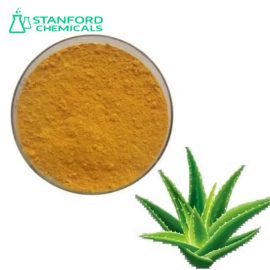
| Product Name | Aloe-emodin |
|---|---|
| CAS No. | 481-72-1 |
| Molecular Formula | C15H10O5 |
| Molecular Weight | 270.24 |
| Purity | 95%, 98% HPLC |
| Package | 25 kg/drum |
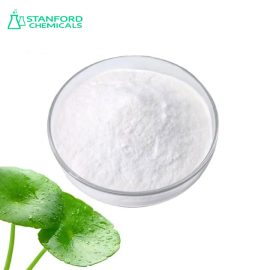
| Product Name | Asiaticoside |
|---|---|
| CAS No. | 16830-15-2 |
| Molecular Formula | C48H78O19 |
| Molecular Weight | 959.12 |
| Purity | 10%-90% HPLC |
| Package | 25 kg/drum |
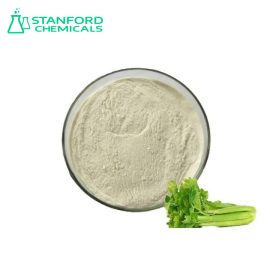
| Product Name | Apigenin |
|---|---|
| CAS No. | 520-36-5 |
| Molecular Formula | C15H10O5 |
| Molecular Weight | 270.25 |
| Botanical Source | Apium graveolens var.dulce |
| Purity | 98% HPLC |
| Appearance | Yellow powder |
| Package | 25 kg/drum |
| Storage | Stored in cool & dry places, protected from direct sunlight and heat. |
| Shelf Life | 2 years |
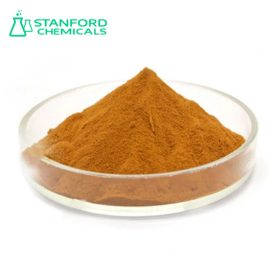
| Product Name | Antharidin |
|---|---|
| CAS No. | 56-25-7 |
| Molecular Formula | C10H12O4 |
| Molecular Weight | 196.21 |
| Botanical Source | Mylabyis phalerta pall and Mylabyis Cicho-rii linnaeus |
| Purity | 98% HPLC |
| Appearance | Fine crystalline powder |
| Package | 25 kg/drum |
| Storage | Stored in cool & dry places, protected from direct sunlight and heat. |
| Shelf Life | 2 years |
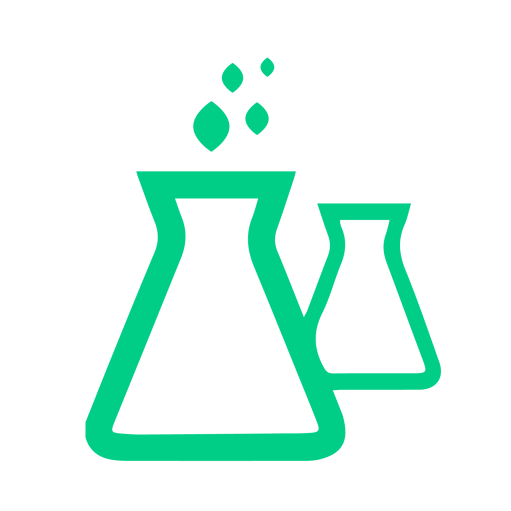
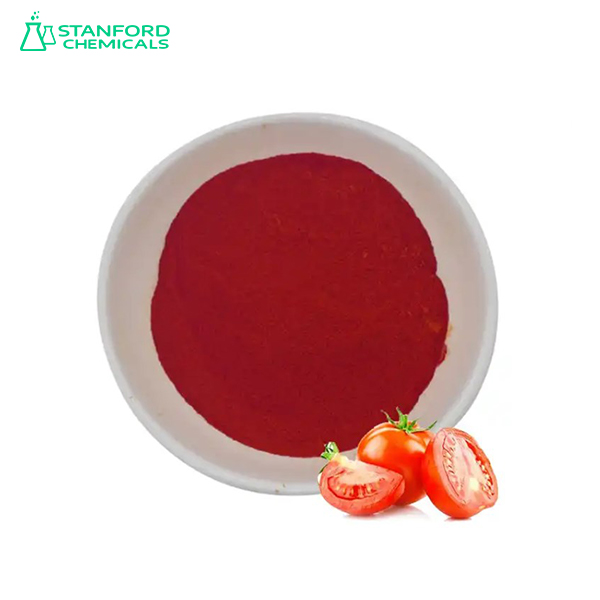
Reviews
There are no reviews yet.